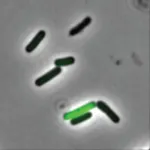(Press-News.org) Wearable devices such as smart watches could be used to detect a higher risk of developing heart failure and irregular heart rhythms in later life, suggests a new study led by UCL researchers.
The peer-reviewed study, published in The European Heart Journal – Digital Health, looked at data from 83,000 people who had undergone a 15-second electrocardiogram (ECG) comparable to the kind carried out using smart watches and phone devices.
The researchers identified ECG recordings containing extra heart beats which are usually benign but, if they occur frequently, are linked to conditions such as heart failure and arrhythmia (irregular heartbeats).
They found that people with an extra beat in this short recording (one in 25 of the total) had a twofold risk of developing heart failure or an irregular heart rhythm (atrial fibrillation) over the next 10 years.
The ECG recordings analysed were from people aged 50 to 70 who had no known cardiovascular disease at the time.
Heart failure is a situation where the heart pump is weakened. It cannot often be treated. Atrial fibrillation happens when abnormal electrical impulses suddenly start firing in the top chambers of the heart (atria) causing an irregular and often abnormally fast heart rate. It can be life-limiting, causing problems including dizziness, shortness of breath and tiredness, and is linked to a fivefold increased risk in stroke.
Lead author Dr Michele Orini (UCL Institute of Cardiovascular Science) said: “Our study suggests that ECGs from consumer-grade wearable devices may help with detecting and preventing future heart disease.
“The next step is to investigate how screening people using wearables might best work in practice.
“Such screening could potentially be combined with the use of artificial intelligence and other computer tools to quickly identify the ECGs indicating higher risk, as we did in our study, leading to a more accurate assessment of risk in the population and helping to reduce the burden of these diseases.”
Senior author Professor Pier D. Lambiase (UCL Institute of Cardiovascular Science and Barts Heart Centre, Barts NHS Health Trust) said: “Being able to identify people at risk of heart failure and arrhythmia at an early stage would mean we could assess higher-risk cases more effectively and help to prevent cases by starting treatment early and providing lifestyle advice about the importance of regular, moderate exercise and diet.”
In an ECG, sensors attached to the skin are used to detect the electrical signals produced by the heart each time it beats. In clinical settings, at least 10 sensors are placed around the body and the recordings are looked at by a specialist doctor to see if there are signs of a possible problem. Consumer-grade wearable devices rely on two sensors (single-lead) embedded in a single device and are less cumbersome as a result but may be less accurate.
For the new paper, the research team used machine learning and an automated computer tool to identify recordings with extra beats. These extra beats were classed as either premature ventricular contractions (PVCs), coming from the lower chambers of the heart, or premature atrial contractions (PACs), coming from the upper chambers.
The recordings identified as having extra beats, and some recordings that were not judged to have extra beats, were then reviewed by two experts to ensure the classification was correct.
The researchers first looked at data from 54,016 participants of the UK Biobank project with a median age of 58, whose health was tracked for an average of 11.5 years after their ECG was recorded. They then looked at a second group of 29,324 participants, with a median age of 64, who were followed up for 3.5 years.
After adjusting for potentially confounding factors such as age and medication use, the researchers found that an extra beat coming from the lower chambers of the heart was linked to a twofold increase in later heart failure, while an extra beat from the top chambers (atria) was linked to a twofold increase in cases of atrial fibrillation.
The study involved researchers at UCL Institute of Cardiovascular Science, the MRC Unit for Lifelong Health and Ageing at UCL, Barts Heart Centre (Barts Health NHS Trust) and Queen Mary University of London. It was supported by the Medical Research Council and the British Heart Foundation, as well as the NIHR Barts Biomedical Research Centre.
END
Smart watches could predict higher risk of heart failure
Wearable devices such as smart watches could be used to detect a higher risk of developing heart failure and irregular heart rhythms in later life, suggests a new study led by UCL researchers
2023-04-03
ELSE PRESS RELEASES FROM THIS DATE:
Cold is beneficial for healthy aging
2023-04-03
Cold activates a cellular cleansing mechanism that breaks down harmful protein aggregations responsible for various diseases associated with aging. In recent years, studies on different model organisms have already shown that life expectancy increases significantly when body temperature is lowered. However, precisely how this works has still been unclear in many areas. A research team at the University of Cologne’s CECAD Cluster of Excellence in Aging Research has now unlocked one responsible mechanism. The study ‘Cold ...
Tiny eye movements are under a surprising degree of cognitive control
2023-04-03
A very subtle and seemingly random type of eye movement called ocular drift can be influenced by prior knowledge of the expected visual target, suggesting a surprising level of cognitive control over the eyes, according to a study led by Weill Cornell Medicine neuroscientists.
The discovery, described Apr. 3 in Current Biology, adds to the scientific understanding of how vision—far from being a mere absorption of incoming signals from the retina—is controlled and directed by cognitive processes.
“These ...
Griffin Charitable Foundation donates $71,000 to the Masonic Medical Research Institute
2023-04-03
UTICA, NY –A $71,000 donation by the Griffin Charitable Foundation, based in Rome, New York, was awarded to the Masonic Medical Research Institute (MMRI) to purchase a new state-of-the-art microscope for imaging cells. “It came as wonderful news that the Foundation pledged this generous donation,” said Stephen F. Izzo, MMRI’s Development Director. “This gift will make a profound impact on our research capabilities.”
The Griffin Charitable Foundation supports not-for-profit entities serving Rome and select organizations ...
Patients with schizophrenia have favorable surgical risk, opening the door for ethical consideration of neurosurgical interventions like Deep Brain Stimulation
2023-04-03
AURORA, Colo. (April 3, 2023) – A study published in Frontiers in Surgery finds that people with schizophrenia (SZ) and schizoaffective disorder (SAD) have overall lower surgical risk than people with Parkinson’s disease, which is reassuring when considering potential surgical interventions such as Deep Brain Stimulation (DBS) for the treatment of SZ and SAD.
DBS, a procedure that implants electrodes in the deeper structures of the brain connected to generators in the chest, is rare in treating SZ and ...
A 21st-century remedy for missed meds
2023-04-03
HOUSTON – (April 3, 2023) – Missing crucial doses of medicines and vaccines could become a thing of the past thanks to Rice University bioengineers’ next-level technology for making time-released drugs.
“This is a huge problem in the treatment of chronic disease,” said Kevin McHugh, corresponding author of a study about the technology published online in Advanced Materials. “It’s estimated that 50% of people don't take their medications correctly. With this, you’d give them one shot, and they’d be all set for the next couple of months.”
When patients fail to take prescription medicine or take it incorrectly, the costs can ...
Research suggests avenues toward gene therapies for polycystic kidney disease
2023-04-03
New Haven, Conn. — Autosomal dominant polycystic kidney disease (ADPKD) is the most common potentially lethal genetic disease—about a half million people in the United States alone suffer from the condition. There is no cure, but new research could open the door to new gene therapies for treating most cases of the disease.
For several decades, researchers have known that mutations in the PKD1 gene, which encodes the polycystin-1 (PC1) protein, can cause the disease in about 80% of cases. However, the protein is too big to be modified through gene therapy strategies. Now, a research ...
New research shows that bacteria get “hangry," too
2023-04-03
Have you ever been so hungry that you become angry, otherwise known as “hangry?” New research by Adam Rosenthal, PhD, assistant professor in the Department of Microbiology and Immunology, has found that some bacteria cells get hangry too, releasing harmful toxins into our bodies and making us sick.
Rosenthal and his colleagues from Harvard, Princeton and Danisco Animal Nutrition discovered, using a recently developed technology, that genetically identical cells within a bacterial community have different functions, with some members behaving more docile and others producing the very toxins that make us feel ill.
“Bacteria behave much more ...
Mount Sinai awarded prestigious $1.3 million grant to expand research training program in skin biology
2023-04-03
The Kimberly and Eric J. Waldman Department of Dermatology at the Icahn School of Medicine at Mount Sinai will expand its research training program in skin biology with support from a five-year, $1.3 million T32 grant from the National Institutes of Health (NIH) and the National Institute of Arthritis and Musculoskeletal and Skin Diseases (NIAMS).
The research training program in Systems Skin Biology will take a multidisciplinary approach in teaching scientists to holistically understand human physiology, health, and disease. As a recognized leader in research for skin biology and skin diseases, Mount Sinai will also become an incubator for future ...
MU grant will help ease nursing workforce shortage
2023-04-03
COLUMBIA, Mo. -- A recent grant from the Missouri Department of Economic Development will help train hundreds of MU students to become part-time nurse assistants at MU Health Care.
The three-year grant, which starts in fall 2023, will create a three-credit hour elective course within the MU Sinclair School of Nursing. The class will help nearly 100 MU students each year earn paid, part-time positions within MU Health Care as nurse assistants, also known as unlicensed assistive personnel (UAPs), certified nurse assistants (CNAs) and patient care technicians.
“We currently have nearly 800 pre-nursing undergraduate students at MU, and as a professor teaching a freshmen-level course, I ...
Yale-led team creates comprehensive resource for impact of genomic variants
2023-04-03
New Haven, Conn. — Each person has about 4 million sequence differences in their genome relative to the reference human genome. These differences are known as variants. A central goal in precision medicine is understanding which of these variants contribute to disease in a particular patient. Therefore, much of the human genome annotation effort is devoted to developing resources to help interpret the relative contribution of human variants to different observable phenotypes – i.e., determining variant impact.
Recently, Yale School of Medicine led a large NIH-sponsored study where multiple institutions and international collaborators came together ...
LAST 30 PRESS RELEASES:
Nanoplastics can interact with Salmonella to affect food safety, study shows
Eric Moore, M.D., elected to Mayo Clinic Board of Trustees
NYU named “research powerhouse” in new analysis
New polymer materials may offer breakthrough solution for hard-to-remove PFAS in water
Biochar can either curb or boost greenhouse gas emissions depending on soil conditions, new study finds
Nanobiochar emerges as a next generation solution for cleaner water, healthier soils, and resilient ecosystems
Study finds more parents saying ‘No’ to vitamin K, putting babies’ brains at risk
Scientists develop new gut health measure that tracks disease
Rice gene discovery could cut fertiliser use while protecting yields
Jumping ‘DNA parasites’ linked to early stages of tumour formation
Ultra-sensitive CAR T cells provide potential strategy to treat solid tumors
Early Neanderthal-Human interbreeding was strongly sex biased
North American bird declines are widespread and accelerating in agricultural hotspots
Researchers recommend strategies for improved genetic privacy legislation
How birds achieve sweet success
More sensitive cell therapy may be a HIT against solid cancers
Scientists map how aging reshapes cells across the entire mammalian body
Hotspots of accelerated bird decline linked to agricultural activity
How ancient attraction shaped the human genome
NJIT faculty named Senior Members of the National Academy of Inventors
App aids substance use recovery in vulnerable populations
College students nationwide received lifesaving education on sudden cardiac death
Oak Ridge National Laboratory launches the Next-Generation Data Centers Institute
Improved short-term sea level change predictions with better AI training
UAlbany researchers develop new laser technique to test mRNA-based therapeutics
New water-treatment system removes nitrogen, phosphorus from farm tile drainage
Major Canadian study finds strong link between cannabis, anxiety and depression
New discovery of younger Ediacaran biota
Lymphovenous bypass: Potential surgical treatment for Alzheimer's disease?
When safety starts with a text message
[Press-News.org] Smart watches could predict higher risk of heart failureWearable devices such as smart watches could be used to detect a higher risk of developing heart failure and irregular heart rhythms in later life, suggests a new study led by UCL researchers




